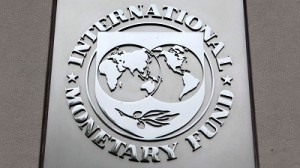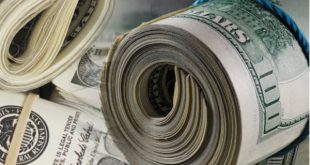 The International Monetary Fund (IMF) has said the rate of financial penetration in Nigeria was still low compared with her peers.
The International Monetary Fund (IMF) has said the rate of financial penetration in Nigeria was still low compared with her peers.
The multilateral institution noted that recent surveys indicated that although Nigeria’s financial penetration rate was improving, the number remains about a third of the adult population.
The IMF stated this in its latest report on Nigeria titled: “Household Financial Access and Risk-sharing in Nigeria,” dated July 2015, that was obtained recently.
It stated that a large fraction of the country’s population save, but not necessarily in banks. According to the report, about 65 per cent of adult population saves in Nigeria. This it noted was much higher than the world average of 36 per cent and above peers (40 per cent for Kenya; 37 per cent for Ghana; 31 percent for South Africa

“Savings in financial institutions is comparable to peers but savings using informal means, such as Rotating Saving and Credit Associations (ROSCAs) is particularly high at 45 per cent,” it added.
It quoted a World Bank index survey on Nigeria to have also shown that about 30 per cent of adult population had an account in the formal banking system in 2011. This coverage was low compared to 50 per cent for the world average, 54 per cent in South Africa, 42 per cent for Kenya, and only a little above the average of 24 per cent for developing countries in sub-Saharan Africa (SSA).
The report also pointed out that poverty in Nigeria remains high, noting that despite non-oil- and consumption-led growth, the country trails its SSA peers in reducing poverty.
“Estimates suggest that the poverty rate declined slightly from 35.2 per cent in 2009/10 to 33.1 percent in 2012/2013, but with significant variation across states (World Bank, 2014). The South West region exhibited the lowest poverty rate (around 16 percent), while the poverty rate in the North East region was over 50 percent (Figure 1).1 Moreover, vulnerability to poverty remains high, implying that a minimal shock could easily push those living a little above the poverty line back into poverty.
“Greater financial inclusion could help poverty alleviation efforts by buffering the impact of unexpected adverse shocks on household consumption and micro-household businesses. Indeed, the government recognises that particular groups and sectors could be more vulnerable than others to downturns.
“Comparing the effect of smoothing household-specific versus community-wide shocks confirms that the informal networks face limitations in smoothing the latter. Given the general ineffectiveness of more formal social safety nets in Nigeria, it remains to be seen if the public sector can create safety nets to complement those provided by informal mechanisms without crowding out what informal assistance already exists,” it added.
The IMF also pointed out that going forward, financial inclusion efforts in Nigeria could have more regional focus by addressing region-specific needs and bottlenecks. For instance, it noted that having access to semi-formal financial institutions was more effective in smoothing negative shocks in the southern part of the country than in the north.
Moreover, informal borrowing was more effective than savings in absorbing shocks in North-east. A regional focus could potentially be beneficial for increasing financial access and aiding poverty alleviation efforts.
“Our empirical findings suggest that those households with some financial access are better able to smooth consumption than those without. In particular, households with financial access who experience an unexpected negative income shock see consumption fall by 15 percentage points less than those without access. This result is mainly driven by households with informal financial access. Moreover, it is household savings, in particular via informal institutions, rather than borrowing that accounts for this result.
Region-specific results show that improved financial access in recent years has delivered uneven consumption smoothing benefits. For instance, having access to semi-formal financial institutions was more effective in smoothing negative shocks in the south than in the north. Moreover, informal borrowing was more effective than savings in absorbing shocks in the North-east,” it added.
 MMS PLUS NG – Maritime, Aviation, Business, Oil and Gas News Online Newspaper with coverage in Maritime, Oil and Gas, Aviation, Power and Energy as well as Financial News
MMS PLUS NG – Maritime, Aviation, Business, Oil and Gas News Online Newspaper with coverage in Maritime, Oil and Gas, Aviation, Power and Energy as well as Financial News









